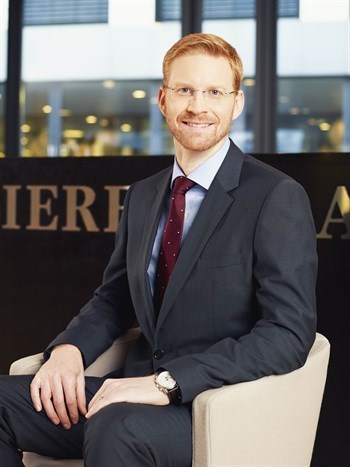
Top stories






More news


Marketing & Media
Ads are coming to AI. Does that really have to be such a bad thing?














Ecole Hoteliere de Lausanne (EHL) - regarded as the best hospitality school in the world - Associate Dean and Professor Dr Achim Schmitt participated in a panel discussion on HR and education issues in the hospitality industry during the recent THINC Africa conference and we asked him to shed some light on hospitality education and the challenges it faces.
Nurturing talent, investing in people, as well as building opportunities, will help to create a qualitative network of hospitality professionals locally.
South Africa's, as well as Africa's tourism industry, promises to keep on booming as one of the key focal sectors of the African Economic Growth Path. It can be expected that economic growth, political stability, the growth of tourism arrivals and currently low hotel room supply will attract investors, hotel and tourism companies, and talent alike in a positive re-enforcing cycle.
One of the key elements of building a sustainable hospitality approach in Africa requires building managerial talent locally. If international managers (expats) spend in average two years in a leadership position of an African hotel and then move on to another country, it will be hard to develop and nurture talent locally. Nurturing talent, investing in people, as well as building opportunities, will help to create a qualitative network of hospitality professionals locally. While it certainly creates and demands a lot of investment at first, this investment will pay off in the long term thanks to lower staff turnover and a good employer reputation in the market.
EHL recognises the dynamic and rapid development of the industry. With almost 10% GDP and the projected global growth trajectories, the industry will transform itself to one of the most vibrant sectors worldwide. With more and more investment, talent, as well as business models created, education will play a key role in how to further provide the energy and talent to fuel this growth. By further investing and developing its short-programs, personalised learning journeys, as well as the development of a rigorous programme portfolio, EHL is ready to take on this challenge. The recent changes to our graduate program portfolio emphasise our commitment to continue to develop the hospitality leaders of tomorrow.
EHL offers far more than just a classroom education. By joining our school, you are joining 125 years of hospitality tradition, joining professional experts that love their profession and the industry. It represents the integration of our hospitality family. More than 25,000 highly committed and active Alumni undeniably highlight this EHL culture. Creating passionate hospitality professionals enables us to create individuals who care about the industry’s development. In this way, our students all share a common responsibility and self-interest in the profession. We create bonds that last a lifetime.
Personalised customer experiences are an increasingly important trend in hospitality. Companies are building their competitive advantages through service excellence. This has increased the need for talent development and service consistency. The impact of this trend can be seen in South Africa’s national tourism sector strategy, which aims to create a service culture in the industry through training and the development of standards/frameworks.
I strongly believe in an approach of standardised education programmes. In the future, and in particular for Africa, education programmes need to increasingly consider the local demands of the hospitality context. For instance, sustainable tourism is an important and emerging global trend that is particularly relevant to Africa. Both consumers and hotel companies are becoming more aware of the social, economic, and environmental impact of their actions, and are moving towards the direction of sustainable practices and tourism. Being an environment that promotes a sustainable mindset, Africa could therefore hugely benefit from this emerging need. Many people (especially international tourists) travel to Africa to discover and experience the “Real African Experience” which is geared towards sustainability, nature conservation and cherishment of the biodiversity. This connects to the global desire of millennial travellers to experience unique experiences and go off the beaten path.
Due to its natural beauty, cultural and historical heritage, the competitive edge of Africa in the quest to develop this kind of tourism is unparalleled. Developing comprehensive hospitality programmes that build and leverage these contextual factors are becoming more and more key for the industry.
